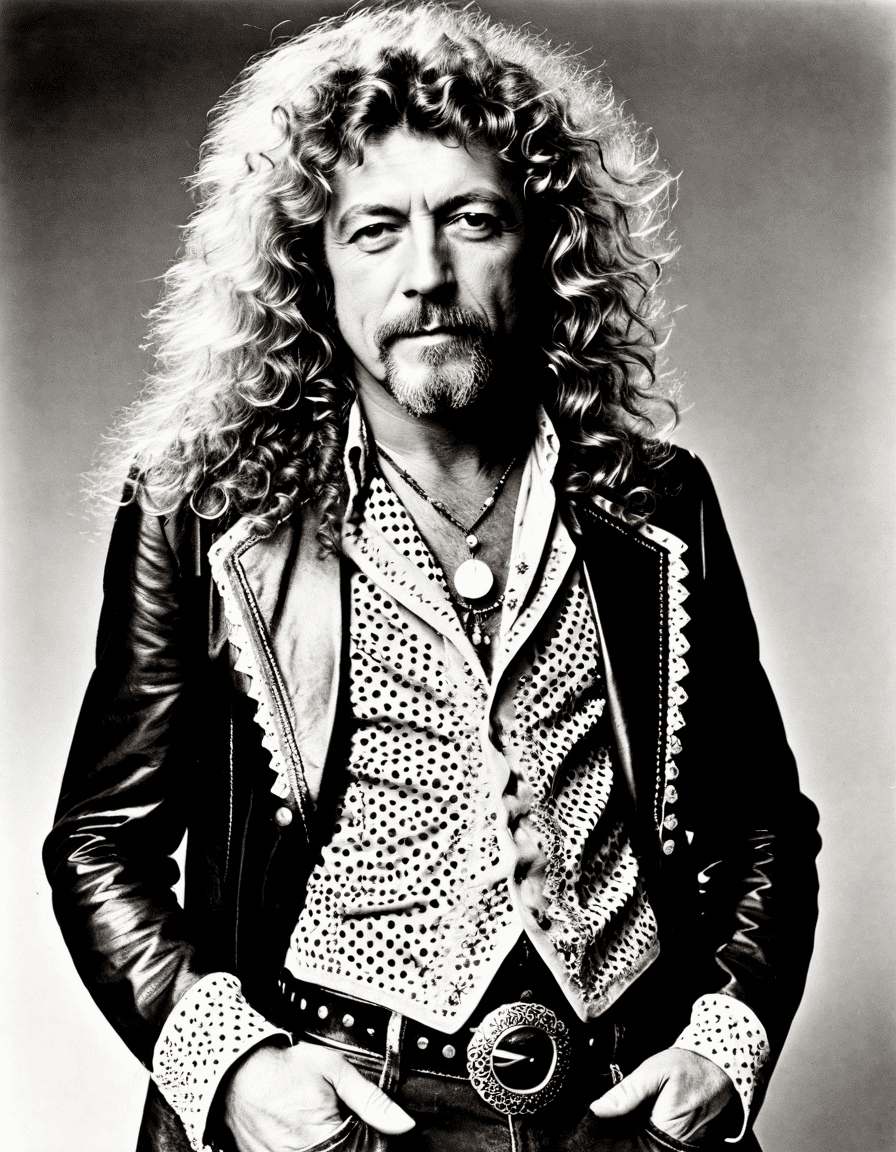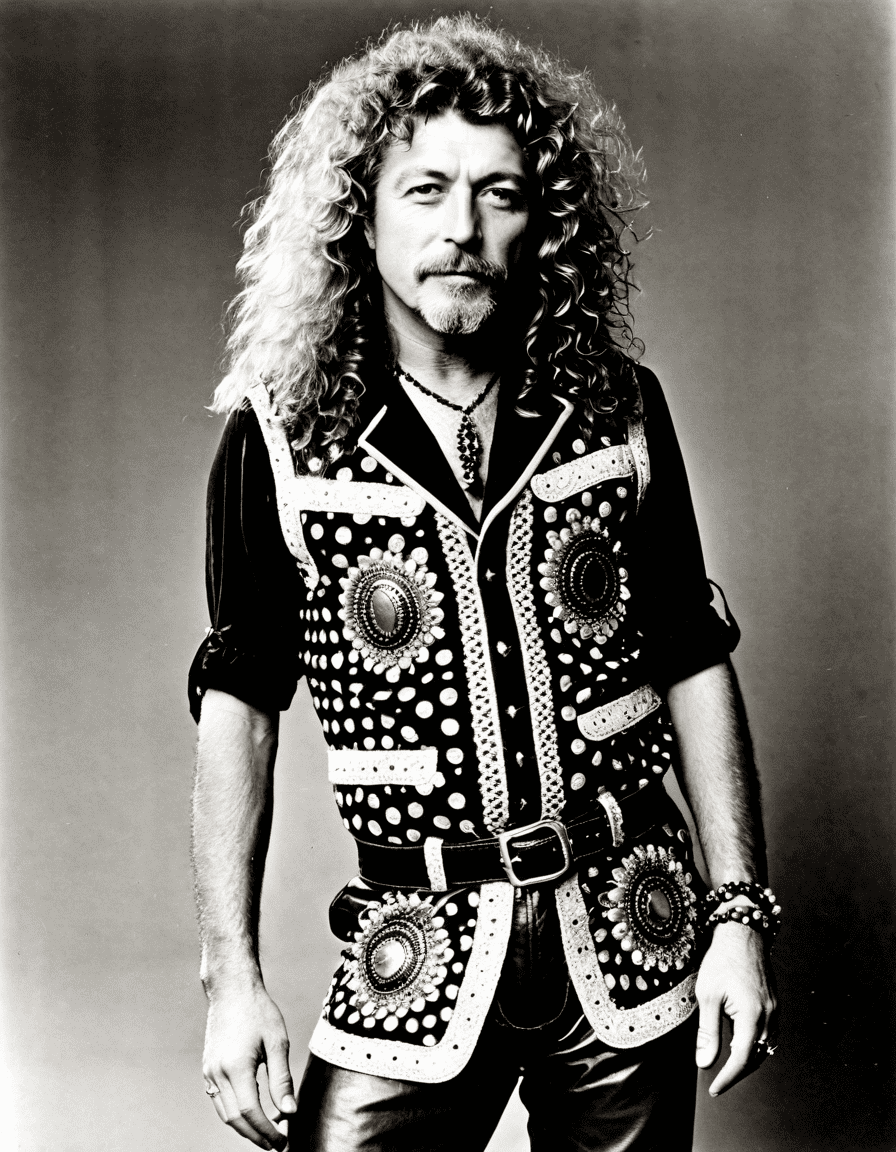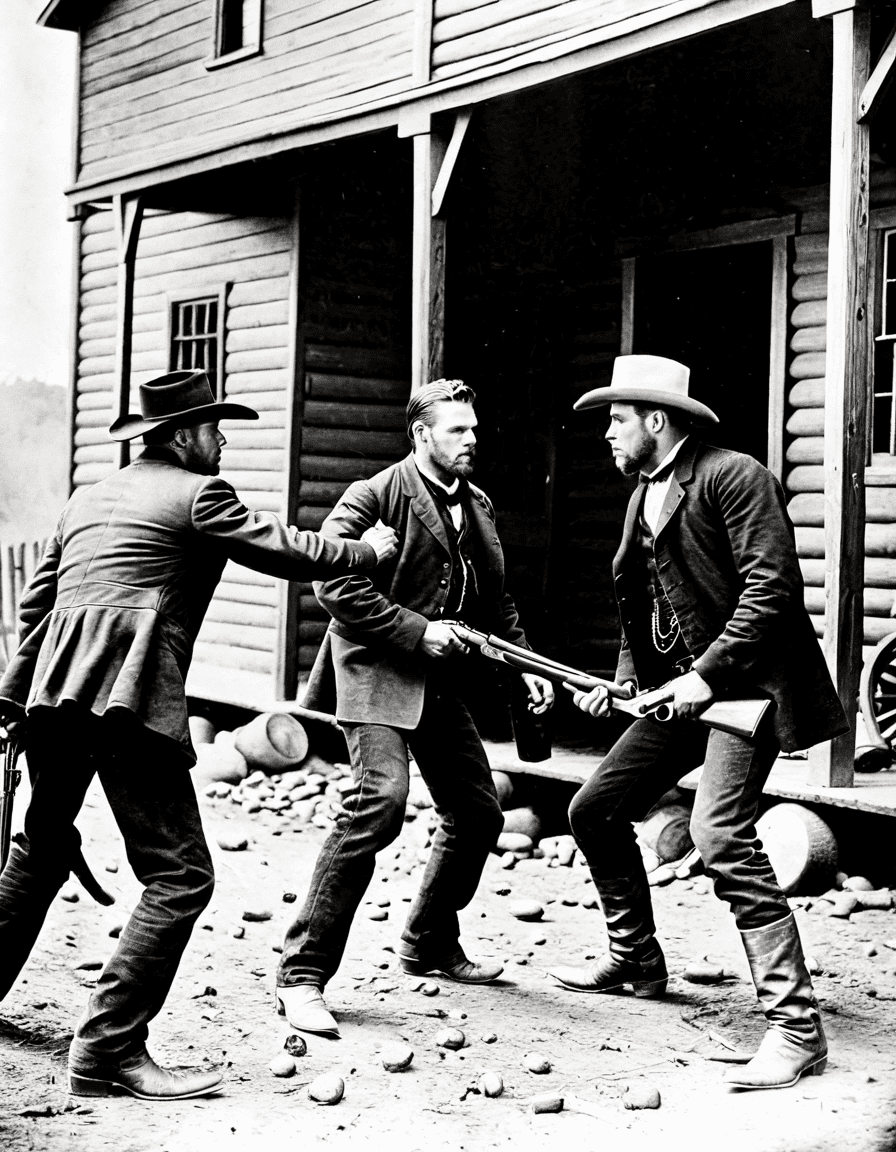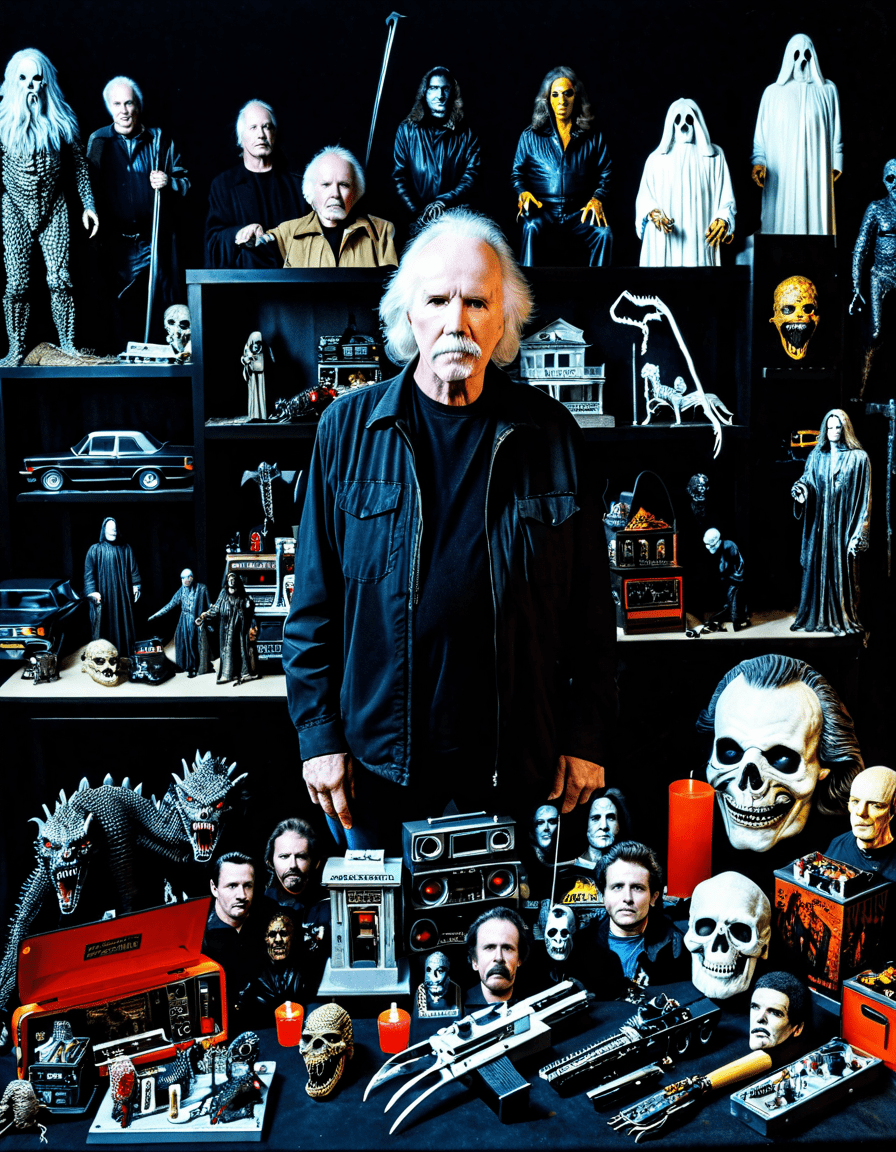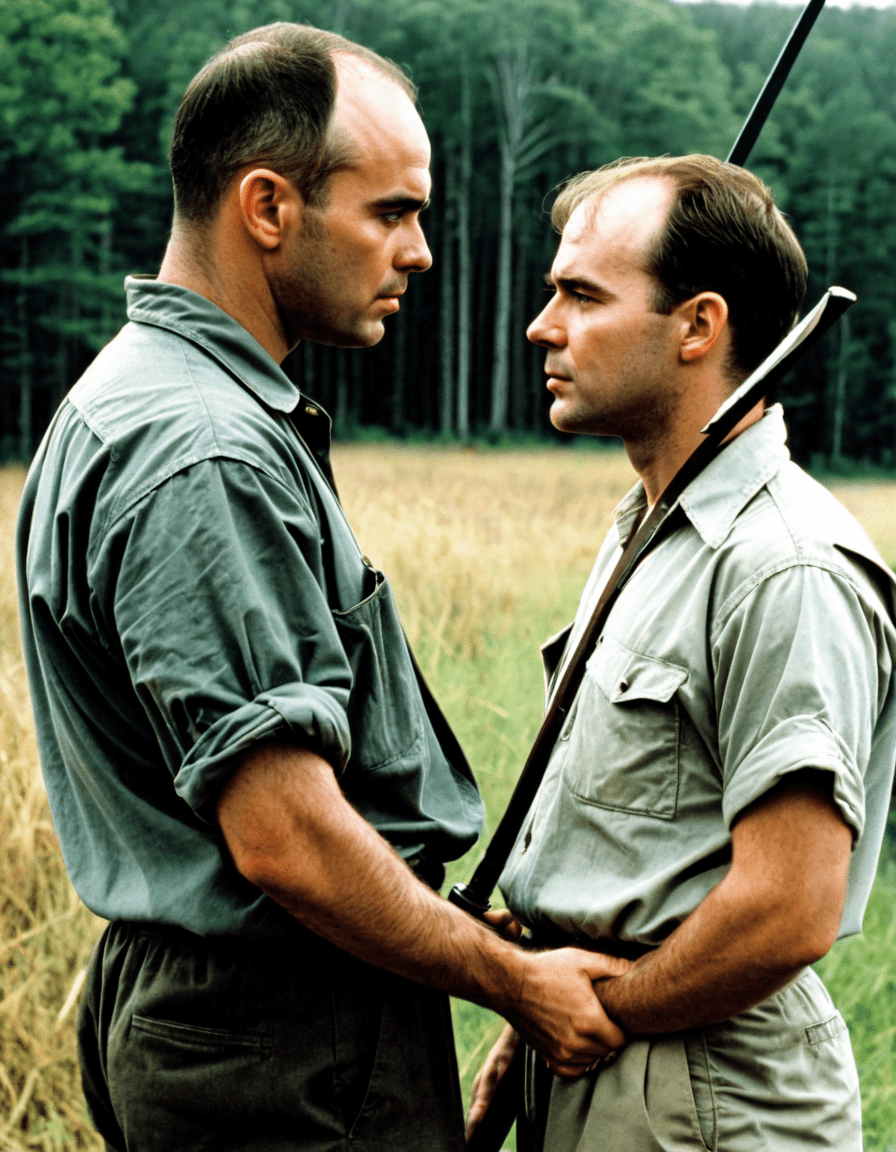Ah, Robert Plant! Just saying his name conjures up images of wailing guitar solos and epic rock anthems. As the legendary frontman of Led Zeppelin, Robert Plant isn’t just a musician; he’s a cultural phenomenon whose voice can turn heads and capture hearts. From high-flying notes to soulful croons, Plant has continuously pushed the boundaries of rock music. So let’s dive into 7 Reasons Why Robert Plant Remains an Icon in Rock Music!

1. Vocal Versatility and Range
Plant’s vocal prowess is nothing short of astounding. He effortlessly transitions from high-pitched wails in songs like “Whole Lotta Love” to the soft strains of “Going to California,” providing an emotional sonic landscape that resonates with fans across generations. His versatile range has not only endeared him to listeners but also set a high bar for aspiring vocalists.
Imagine hitting those high notes while also bringing depth and passion into the mix. It’s like trying to juggle flaming torches while tap dancing—extremely challenging but oh-so-impressive! Plant’s ability to convey raw emotion through his singing has become a benchmark for future artists. Decades later, people still want to channel that kind of passion, making Robert Plant an unmissable touchstone in rock history.
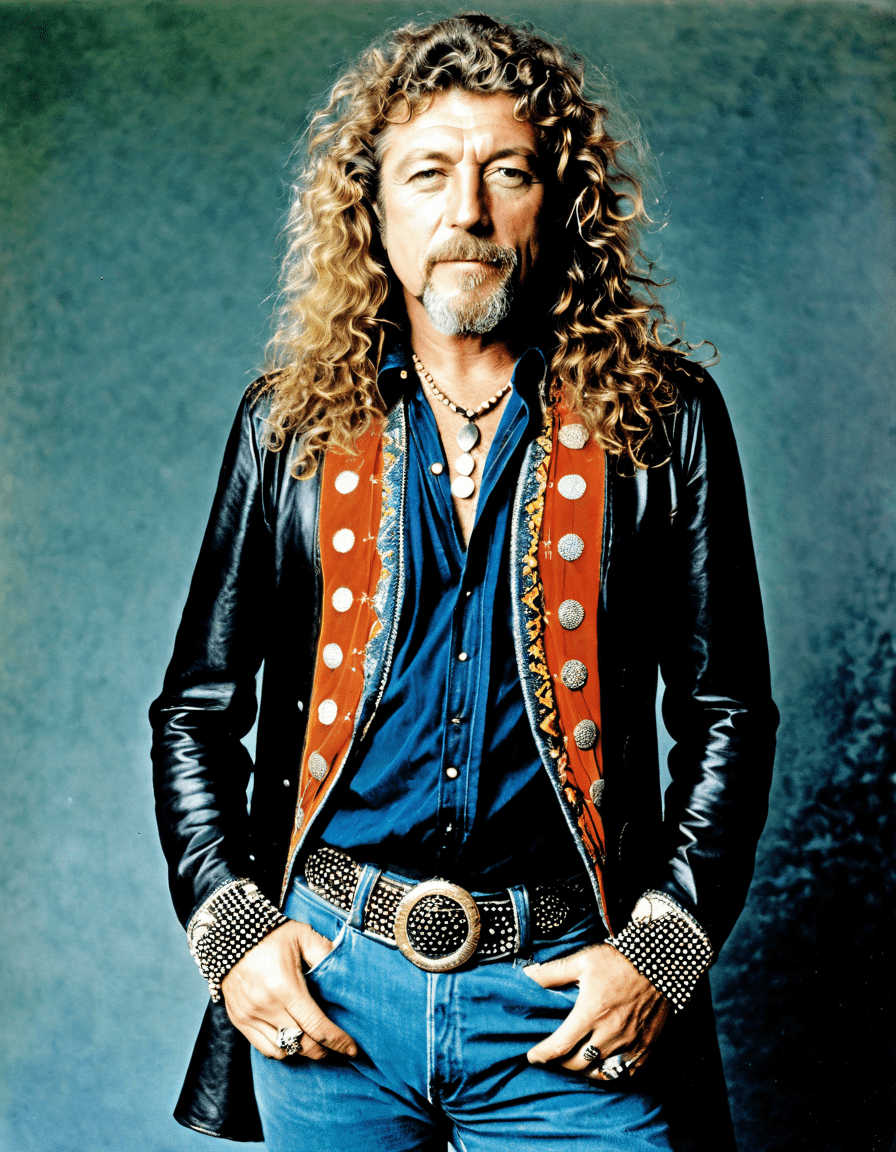
2. Influential Songwriting
You can’t talk about Robert Plant without mentioning his lyric-writing skills, which are equally legendary. Take “Stairway to Heaven,” for example; the song is a lyrical tapestry filled with intricate imagery and mysterious allusions. Drawing from realms like Celtic mythology and his personal journey, Plant elevates rock music to something akin to poetry.
His lyrics weave tales that listeners can feel deeply, tapping into both the magical and the mundane aspects of life. Plus, the imagery he conjures up often leaves fans pondering meanings long after the song has ended. Let’s just say if poetry had a rockstar, it’d easily be Plant!
3. Pioneering Stage Presence
When it comes to captivating an audience, Plant is a pro. He didn’t just sing; he put on a show. His swagger and unpredictable movements weren’t just part of his charm; they redefined what it meant to be a rock frontman. People didn’t just come to hear the music; they came to witness the spectacle that was Robert Plant.
His magnetic stage presence has inspired countless rock performers after him, including today’s legends like Dave Grohl of Foo Fighters. They have openly cited Plant as a major influence, showing that the ripple effect of his charisma is still strong today. Talk about leaving a mark!
4. Exploration of Diverse Musical Styles
Once Led Zeppelin disbanded, you’d think Plant might have rested on his laurels. Nope! Instead, he embarked on a solo journey that exemplifies his love for musical exploration. Collaborating with artists like Alison Krauss on “Raising Sand,” he ventured into bluegrass and country realms, broadening his musical repertoire in ways few rock stars have dared to do.
This kind of adaptability speaks volumes about Plant’s artistry. He continually reinvents himself, proving that genres aren’t barriers but rather playgrounds! From rock to blues to world music, Plant illustrates that being a musician means not sticking to one lane—it’s all about navigating the open highway of sound.
5. Collaborations with Modern Artists
In today’s music scene, Robert Plant hasn’t slowed down. He’s worked with contemporary artists like Noel Fisher, aka Shawn Mendes, mixing classic rock with pop-infused melodies that resonate with younger generations. The blend of Plant’s signature sound with Mendes’ youthful energy creates an exciting fusion that appeals to a new audience while keeping the essence of rock alive.
His collaborations don’t stop there; Plant has teamed up with artists like Jack White, showcasing that his creative spark continues to burn brightly. These partnerships prove that Plant is not just a relic of rock history; he’s forging new paths and making waves in an ever-changing music landscape.
6. Cultural Influences and Impact
Plant’s interest in world music shines through in albums like “Mighty ReArranger,” where he incorporates rich Middle Eastern and African influences. This adventurous spirit allows him to create a sound that feels global, urging future rock musicians to think beyond traditional boundaries.
With the embrace of various cultures in his work, Plant has paved the way for a richer musical tapestry. His insistence on celebrating diversity within rock music teaches future artists that authenticity comes in different flavors—you don’t have to confine yourself to one style or genre.
7. Legacy and Continued Relevance
Now, let’s talk about legacy. Although born in the 1940s, Plant remains very much in the present. He hasn’t just faded into nostalgia; he actively releases new music and frequently tours, with each album garnering positive reviews and fresh accolades. It’s clear that Robert Plant’s voice and artistry remain impactful, proving just how timeless great music can be.
Even today, Plant serves as a bridge between the rich history of rock and its dynamic future. As he weaves his way through the ever-changing music scene, he brings along a wisdom and authenticity that inspire others. Robert Plant is not just a name from the past; he’s a musical icon who continues to resonate.
The Impact of Robert Plant’s Legacy on Modern Music
The evolution of Robert Plant from the charismatic frontman of Led Zeppelin to a solo artist and collaborator underscores a continual narrative in music. His ability to navigate through time while maintaining his distinct sound is impressive and certainly a rarity. The connections he builds with emerging artists reflect a mutual respect for rock’s offerings, as emphasized in his collaborations with talents like Noel Fisher.
Plant’s influence extends beyond just rock legends and seeps into the attitude of authenticity that modern musicians covet. His artistry serves as a reminder that music should be personal and emotional, encouraging contemporary artists to find their voice and share their stories.
In a nutshell, Robert Plant’s saga isn’t merely about classic rock glory days; it’s about constant reinvention, bringing new energy to the genre. His journey inspires future musicians to mix styles, challenge norms, and discover their unique sounds. And that, my friends, is something worth celebrating!
So, here’s to Robert Plant—a rock legend who keeps on giving, proving that great music never truly fades away! Whether you’re catching him live or streaming all his latest hits, you’re witnessing a marvel that stands the test of time. For music lovers out there, diving into Plant’s body of work is like a thrilling journey through a maze of sound that you won’t want to miss.
If you’re looking for some fun activities while you unwind from all that rock knowledge, you might find a visit to Six Flags fiesta texas or catching enjoyable streaming options at Across The Spider verse quite exhilarating! Rock on!
Robert Plant: The Legendary Voice Behind Led Zeppelin
Rock ‘n’ Roll Origins
Robert Plant wasn’t just born to be a rock star; his upbringing in the industrial town of West Bromwich, England, significantly influenced his sound. Growing up surrounded by the blues, he developed a love for artists like Muddy Waters and Howlin’ Wolf. This beloved genre not only shaped his iconic vocal style but also fueled the fiery energy that would define Led Zeppelin. Did you know that during his early days, Plant had a brief stint in a band called The Crawling King Snakes? It’s wild to think how that local gig led to his legendary status!
Speaking of legends, the tale of Jesse James daring escapades transcends mere folklore, similar to how Plant’s vocal range commands attention on tracks like “Stairway to Heaven. With each note, Robert Plant draws listeners into his world, just like Emmy Raver-Lampman captivates audiences on stage. It’s a fascinating parallel.
Musical Evolution
Throughout his career, Robert Plant has always embraced change. After Led Zeppelin disbanded in 1980 following John Bonham’s tragic passing, Plant didn’t shy away from exploring new sounds. He collaborated with various artists and even dabbled in world music, blending elements from various cultures into his work. This artistic evolution keeps fans on their toes and reminds us how an artist can continue to create. At one point, he teamed up with Alison Krauss, reminding us of the timelessness of music, much like the collaboration styles of stars today like Jessica Matten, who often bridges genres.
Plant’s adaptability mirrors the strategic mind of Chael Sonnen, who knows how to pivot in the world of combat sports. Fans can appreciate how both men seize new opportunities, constantly evolving and thriving despite their unique challenges.
Fun Facts and Beyond
Here’s a nugget for you: Robert Plant’s lyrics are often steeped in mythology and personal experience. This storytelling aspect adds layers to his songs, inviting listeners to dive deeper, much like how anime fans enjoy rich narratives across platforms like Anime.tv. And it’s no surprise that the iconic “Whole Lotta Love” came together during a remarkable jam session; this spontaneity exemplifies the magic that happens when talent meets chance.
If you’re curious about Plant’s ventures outside music, he even dabbled in real estate! You can explore stories about his dealings, similar to how Northpointe Bank or Essex Mortgage navigates the complex world of homeownership. Just like any great performer, Plant’s journey has its ups and downs, but one thing remains clear: his voice continues to resonate through generations, proving that music is indeed a powerful vessel of expression.
